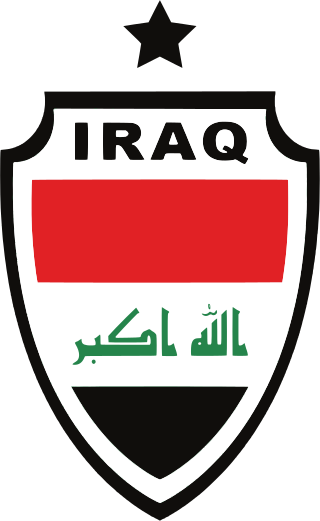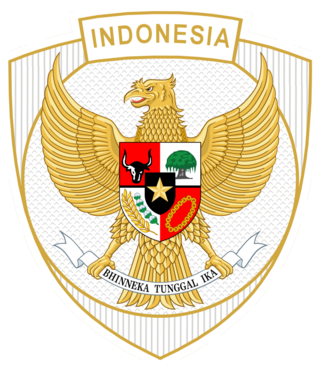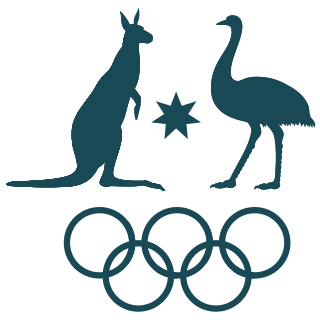
The Israel national football team represents Israel in men's international football, and is governed by the Israel Football Association. They have been members of the European Confederation UEFA since 1994.

The Japan national football team, also known by the nickname Samurai Blue, represents Japan in men's international football. It is controlled by the Japan Football Association (JFA), the governing body for football in Japan.

The South Korea national football team represents South Korea in men's international football and is governed by the Korea Football Association. South Korea has emerged as a major football power in Asia since the 1980s, having participated in ten consecutive and eleven overall FIFA World Cup tournaments, the most for any Asian country. Despite initially going through five World Cup tournaments without winning a match, South Korea became the first Asian team to reach the semi-finals when they co-hosted the 2002 tournament with Japan. South Korea also won two AFC Asian Cup titles, and finished as runners-up on four occasions. Furthermore, the team won three gold medals and three silver medals at the senior Asian Games.

The Saudi Arabia national football team represents Saudi Arabia in men's international football. They are known as Al-Suqour Al-Khodhur, a reference to their traditional colours of green and white, and represent both FIFA and the Asian Football Confederation (AFC).

The Uzbekistan national football team represents Uzbekistan in international football and is controlled by the Uzbekistan Football Association, the governing body for football in Uzbekistan.

The Iraq national football team represents Iraq in international football and is controlled by the Iraq Football Association (IFA), the governing body for football in Iraq. Iraq's usual home venue is the Basra International Stadium.

The Indonesia national football team represents Indonesia in international football. They were the first Asian team to participate in the FIFA World Cup, particularly in the 1938 edition as the Dutch East Indies. The 6–0 loss to eventual finalists Hungary in the first round remains the nation's only appearance in the World Cup. Thus, Indonesia holds the World Cup records as the team with the fewest matches played (1) and one of the teams with the fewest goals scored (0).
The Syria national football team represents Syria in international football, and is controlled by the Syrian Arab Federation for Football, the governing body for football in Syria. Syria has never qualified for the World Cup finals, but did reach the fourth qualification round in 2018. The team is currently banned by FIFA from playing at home, as they have not hosted a game since December 2010. Internationally, Syria won the 2012 WAFF Championship, 1957 Arab Games and the 1987 Mediterranean Games.

The Vietnam national football team represents Vietnam in men's international senior football and is controlled by the Vietnam Football Federation, the governing body of football in Vietnam. It has been nicknamed the Golden Star Warriors.

The Lebanon national football team, controlled by the Lebanese Football Association (LFA), have represented Lebanon in association football since their inception in 1933. The squad is governed by the Asian Football Confederation (AFC) continentally, and FIFA worldwide. While Lebanon have yet to qualify for the FIFA World Cup, they have qualified three times to the AFC Asian Cup: they first participated in 2000, when they hosted the event. Lebanon's main venue is the Camille Chamoun Sports City Stadium in Beirut; however they also play in other locations such as the Saida Municipal Stadium in Sidon.

The Myanmar national football team represents Myanmar in men's international association football and is governed by the Myanmar Football Federation.

The Pakistan national football team represents Pakistan in men's international football in FIFA-authorized events and is controlled by the Pakistan Football Federation, the governing body for football in Pakistan. Pakistan became a member of FIFA in 1948 joining the Asian Football Confederation and its national team debuted in 1950.

The Palestine national football team, governed by the Palestinian Football Association, represents Palestine in association football. The squad is governed by the Asian Football Confederation (AFC) continentally, and FIFA worldwide.

The Indonesia national under-23 football team is considered to be the feeder team for the Indonesia national football team, represents Indonesia at football in the Olympic Games, Asian Games and Southeast Asian Games, as well as any other under-23 international football tournaments including the AFC U-23 Asian Cup. It is controlled by the Football Association of Indonesia.

The Australia national under-23 soccer team represents Australia in international under-23 soccer and at the Olympic Games. The team is controlled by the governing body for soccer in Australia, Football Australia (FA), which is currently a member of the Asian Football Confederation (AFC) and the regional ASEAN Football Federation (AFF) since leaving the Oceania Football Confederation (OFC) in 2006. The team's official nickname is the Olyroos.
Malaysia national under-23 football team, also known as Malaysia Under-23, Malaysia U-23 or Malaysia Olympic football team is the national association football team of Malaysia in under-23 and 22 level, representing the country at the Olympic Games, Asian Games and Southeast Asian Games, as well as any other under-23 international football tournaments including the AFC U-23 Championship.

The Myanmar women's national football team is the female association football team representing Myanmar and is controlled by Myanmar Football Federation (MFF).
The Thailand national under-23 football team, also known as the Thailand Olympic football team, is the national team for the under-23 and 22 level, representing Thailand in international football competitions in the Olympic Games, Asian Games and Southeast Asian Games, as well as any other under-23 international football tournaments including the AFC U-23 Championship. It is controlled by the Football Association of Thailand.
Volleyball at the 2010 Asian Games was held in Guangzhou, Guangdong, China from November 13 to 27, 2010. In this tournament, 18 teams played in the men's competition, and 11 teams participated in the women's competition. All matches were played at the Guangwai Gymnasium, the Guangyao Gymnasium and the Zhongda Gymnasium.

The AFC U-23 Asian Cup, previously the AFC U-22 Championship and AFC U-23 Championship, is a biennial international football competition organised by the Asian Football Confederation (AFC) for the men's under-23 national teams of Asia. Each even-yeared edition of the tournament is linked to the qualification process for the Olympic Games, such as in 2016 and 2020, from which the top three teams qualified.














